
Herzliya: The Mediterranean Gem of Israel
Herzliya, a coastal city in Israel, offers a blend of golden beaches, rich history, and modern luxury. Nestled along the Mediterranean Sea, it boasts a stunning marina, vibrant nightlife, and a plethora of dining options. Herzliya's pristine beaches are perfect for sunbathing, swimming, and water sports, making it a haven for beach lovers and adventure seekers alike. The city is home to the Herzliya Pituach area, renowned for its upscale hotels, chic cafes, and exclusive boutiques. This district exudes a cosmopolitan vibe, attracting both locals and tourists with its lively atmosphere and high-end amenities. History enthusiasts will appreciate the nearby Apollonia National Park, where ancient ruins and breathtaking sea views await. Herzliya also stands out for its commitment to cultural experiences. The Herzliya Museum of Contemporary Art showcases remarkable works from Israeli and international artists. For those interested in technology and innovation, the city's proximity to the Silicon Wadi area provides a glimpse into Israel's thriving tech industry.
Local tips in Herzliya
- Visit the Herzliya Marina for boat tours and seaside dining.
- Explore Apollonia National Park early in the morning to avoid crowds and enjoy the serene environment.
- Book accommodations in Herzliya Pituach for easy access to the beach and nightlife.
- Check out local art at the Herzliya Museum of Contemporary Art.
- Try local seafood dishes at one of the beachfront restaurants.
Neighbourhoods in Herzliya
Herzliya: The Mediterranean Gem of Israel
Herzliya, a coastal city in Israel, offers a blend of golden beaches, rich history, and modern luxury. Nestled along the Mediterranean Sea, it boasts a stunning marina, vibrant nightlife, and a plethora of dining options. Herzliya's pristine beaches are perfect for sunbathing, swimming, and water sports, making it a haven for beach lovers and adventure seekers alike. The city is home to the Herzliya Pituach area, renowned for its upscale hotels, chic cafes, and exclusive boutiques. This district exudes a cosmopolitan vibe, attracting both locals and tourists with its lively atmosphere and high-end amenities. History enthusiasts will appreciate the nearby Apollonia National Park, where ancient ruins and breathtaking sea views await. Herzliya also stands out for its commitment to cultural experiences. The Herzliya Museum of Contemporary Art showcases remarkable works from Israeli and international artists. For those interested in technology and innovation, the city's proximity to the Silicon Wadi area provides a glimpse into Israel's thriving tech industry.
When is the best time to go to Herzliya?
Iconic landmarks you can’t miss
Marina Herzliya
Discover the vibrant Marina Herzliya, where stunning views, exquisite dining, and exciting water activities await in the heart of Israel's coastline.
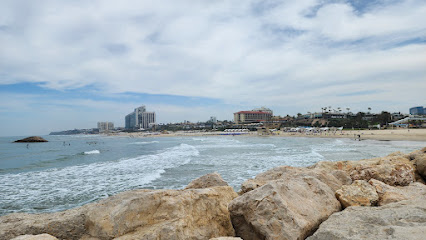
Herzliya Park
Explore the beauty and tranquility of Herzliya Park, a stunning urban oasis by the Mediterranean perfect for relaxation, recreation, and scenic views.
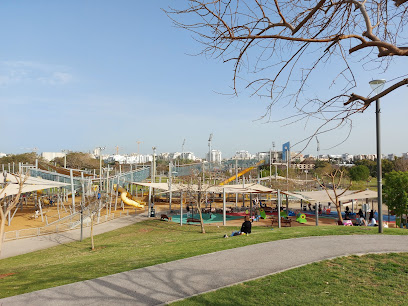
Arena
Experience the best of shopping, dining, and entertainment at Arena Mall in Herzliya, a vibrant destination for every traveler.
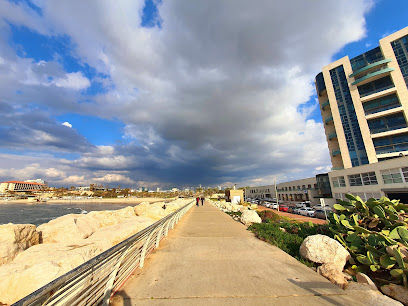
Apollonia National Park
Explore the rich history and breathtaking coastal landscapes of Apollonia National Park, a perfect blend of nature and ancient ruins in Herzliya, Israel.
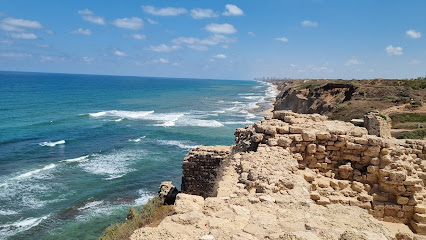
גרקו בוזוקיה | הרצליה
Savor the authentic flavors of Greece at this charming Herzliya restaurant, where culinary tradition meets the Mediterranean spirit.
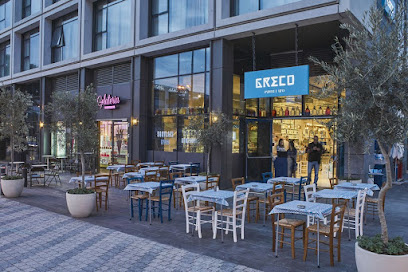
Sharon Reserve
Explore the stunning landscapes and rich biodiversity of Sharon Reserve, a top nature preserve and hiking destination in Herzliya, Israel.
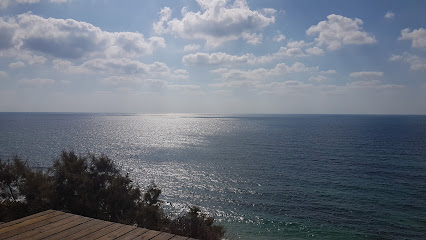
The Ritz-Carlton, Herzliya
Experience luxury and relaxation at The Ritz-Carlton, Herzliya, where stunning Mediterranean views meet world-class amenities in a prime coastal location.

Calata 15
Experience the vibrant flavors of Mediterranean cuisine at Calata 15, Herzliya's premier dining destination for food lovers.
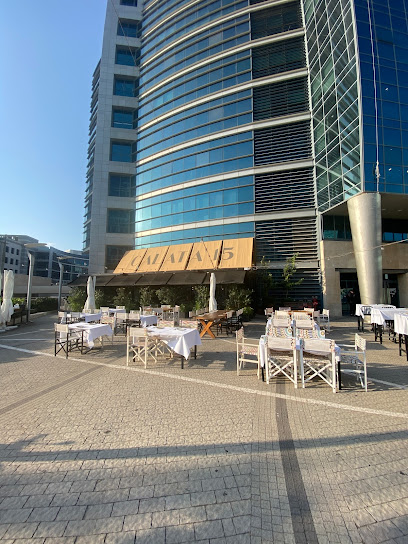
Herzliya Museum of Contemporary Art
Experience the vibrant world of modern artistry at the Herzliya Museum of Contemporary Art in Israel, where creativity and culture come alive.
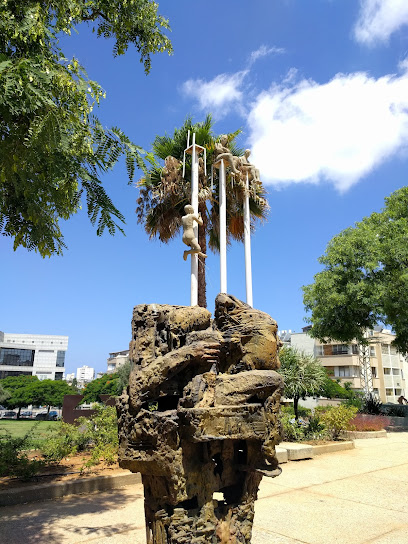
Sidna Ali Beach
Experience the beauty of Sidna Ali Beach, a serene coastal retreat in Israel, perfect for sunbathing, water sports, and enjoying local culture.
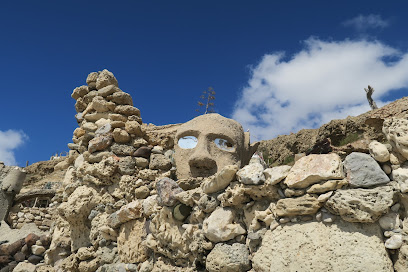
Mini-golf Herzliya
Experience fun and friendly competition in Herzliya at the vibrant Mini-golf course, perfect for families and friends seeking a delightful adventure.
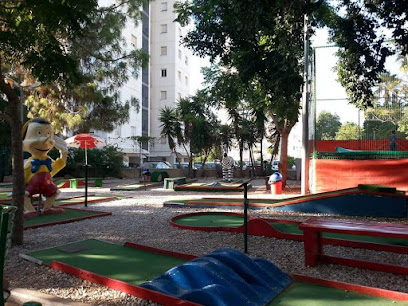
Herzliya Beach
Discover Herzliya Beach: A beautiful Mediterranean destination combining relaxation, adventure, and delicious local cuisine.
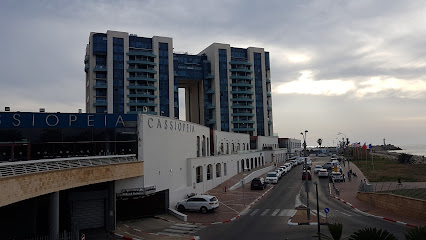
Glil Yam Park
Explore the serene beauty of Glil Yam Park in Herzliya, an ideal destination for families and nature lovers seeking relaxation and fun.
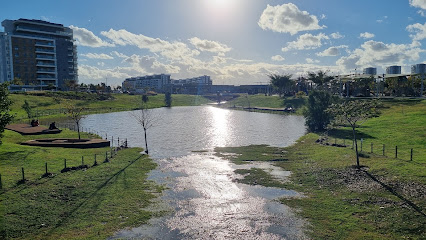
Gazebbo
Experience the best of Mediterranean cuisine and thrilling water sports at Gazebbo in Herzliya, where culinary delights meet coastal adventures.
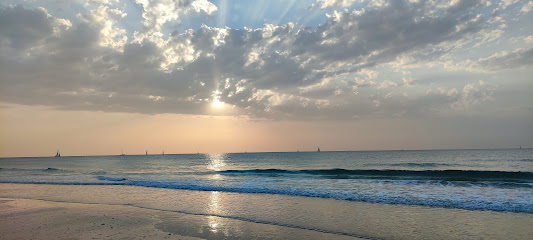
Picolonia City
Explore Picolonia City in Herzliya: A vibrant indoor playground where fun and imagination come to life for families and children of all ages.
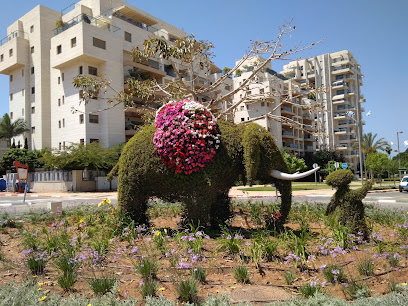
Unmissable attractions to see
Caesarea National Park
Discover the ancient beauty of Caesarea National Park, where history meets breathtaking coastal landscapes in Israel's rich heritage.
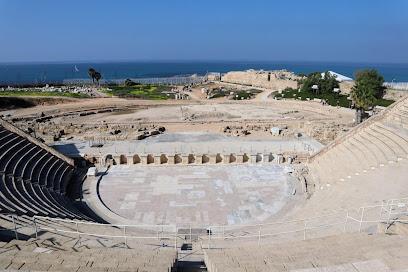
Yarkon Park
Explore the serene beauty and recreational activities of Yarkon Park, a must-visit natural retreat in the vibrant heart of Tel Aviv.
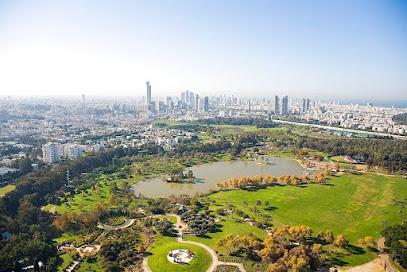
Jaffa Flea Market
Explore the eclectic Jaffa Flea Market in Tel Aviv-Yafo, a vibrant hub of antiques, crafts, and local cuisine, perfect for every traveler.
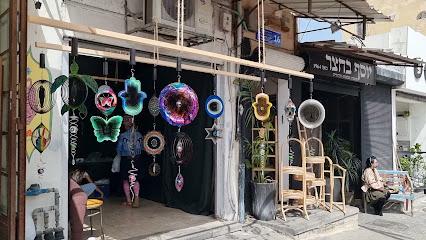
The Clock Tower
Discover the rich history and architectural beauty of The Clock Tower, a must-visit historical landmark in Tel Aviv-Yafo's vibrant cityscape.
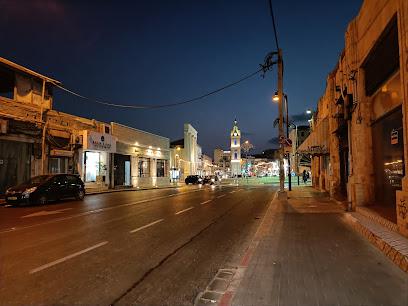
Tel Aviv Museum of Art
Discover the artistic treasures at the Tel Aviv Museum of Art, a cultural gem showcasing contemporary and classic masterpieces in a stunning setting.
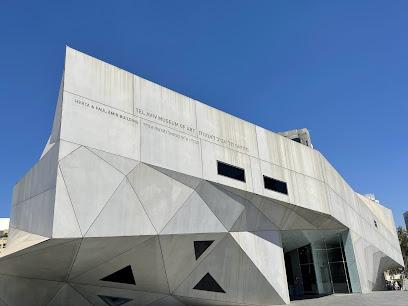
Park HaTachana
Explore the vibrant Park HaTachana in Tel Aviv, where history meets modernity, offering a unique blend of shopping, dining, and cultural experiences.
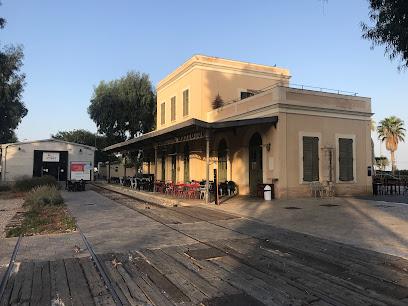
Levinski Market
Discover the lively atmosphere and rich flavors of Levinski Market, a must-visit destination in the heart of Tel Aviv-Yafo.
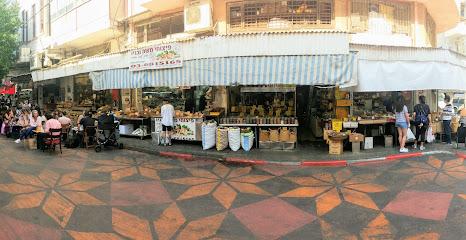
Marina Herzliya
Experience the vibrant atmosphere and stunning views of Marina Herzliya, a must-visit waterfront destination in Israel, perfect for relaxation and adventure.
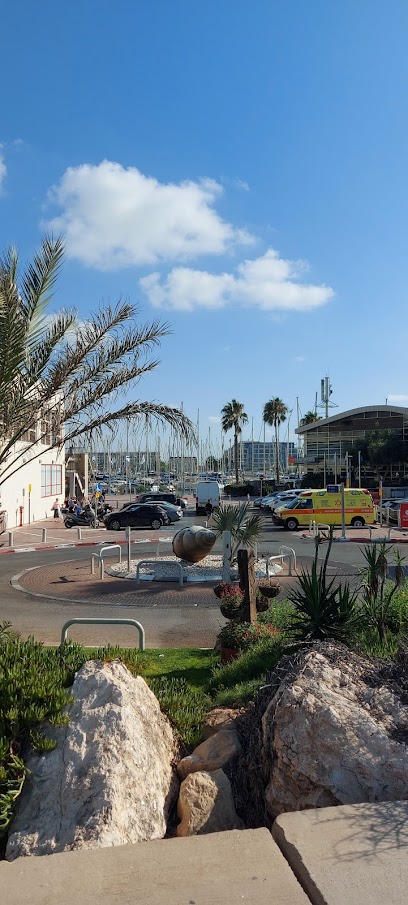
HaBima Square
Experience the lively culture and beautiful gardens of HaBima Square in the heart of Tel Aviv-Yafo, a perfect spot for relaxation and inspiration.
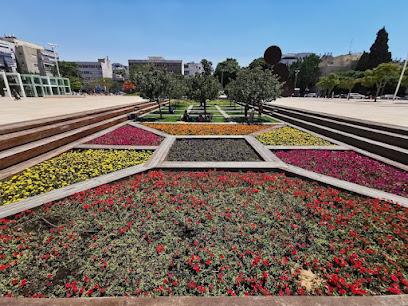
Tel Aviv Port
Experience the lively atmosphere and culinary delights at Tel Aviv Port, a must-visit waterfront destination for every traveler.
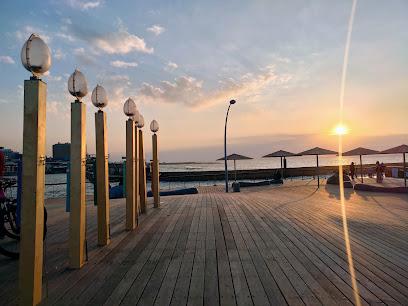
ANU Museum of the Jewish People
Explore the ANU Museum of the Jewish People in Tel Aviv-Yafo, a captivating journey through Jewish heritage, art, and history.
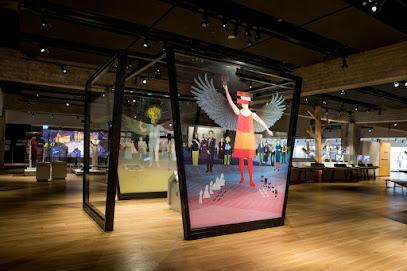
Apollonia National Park
Explore Apollonia National Park: A stunning blend of history and nature along the Mediterranean coast, ideal for hiking and sightseeing in Herzliya.
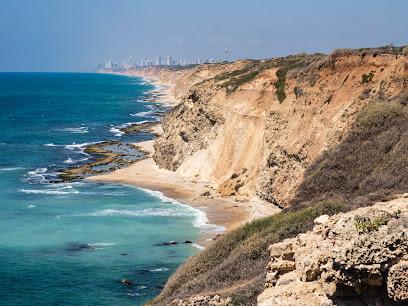
Midron Yaffo Park
Experience the beauty of Midron Yaffo Park, a tranquil urban oasis in Tel Aviv-Yafo, perfect for relaxation and stunning Mediterranean views.
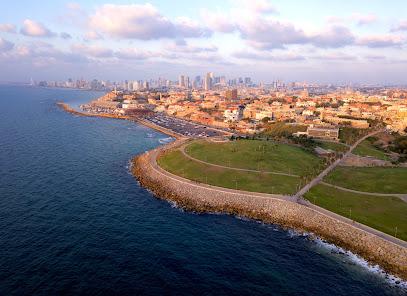
Eretz Israel Museum
Explore the rich cultural heritage of Israel at Eretz Israel Museum, a captivating destination for history and archaeology enthusiasts in Tel Aviv.
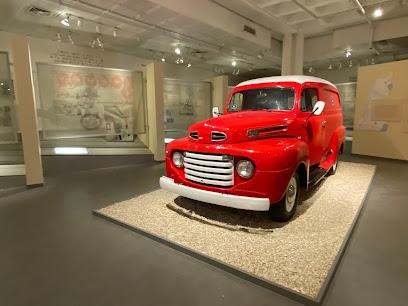
Bezalel Market
Discover the vibrant flavors and local culture at Bezalel Market in Tel Aviv-Yafo, a must-visit destination for every traveler.
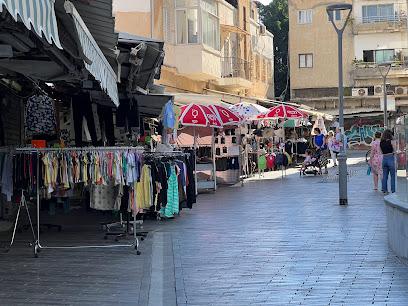
Essential places to dine
גרקו בוזוקיה | הרצליה
Experience authentic Greek cuisine at Greco Buzuki in Herzliya - a vibrant restaurant offering delicious Mediterranean flavors and stunning views.
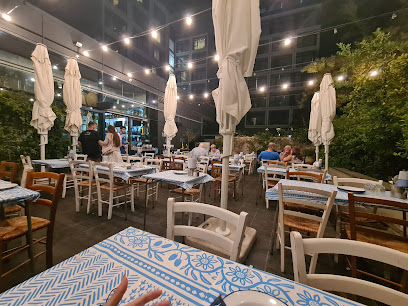
Benedict
Experience the best breakfast and brunch at Benedict in Herzliya – where culinary delights await every visitor.
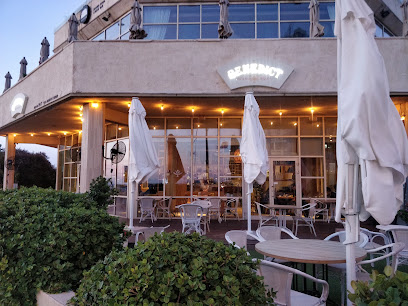
Sebastian
Discover the culinary excellence of Sebastian in Herzliya - where exquisite flavors meet elegant dining.
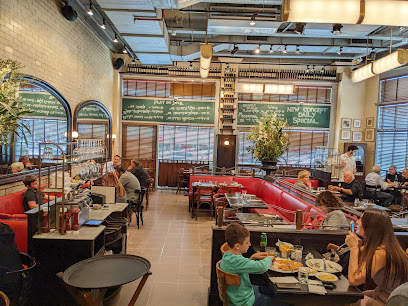
MeatBar
Experience an unforgettable culinary journey at MeatBar in Herzliya—where premium cuts meet exceptional service.
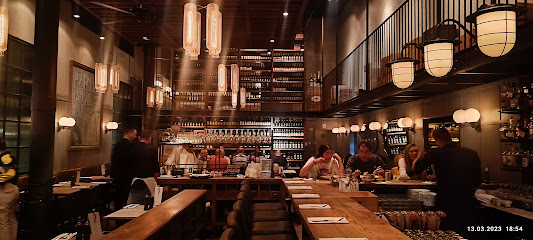
La Vaca Loca
Discover authentic Argentinian cuisine at La Vaca Loca in Herzliya - where every meal is a celebration of flavor and tradition.
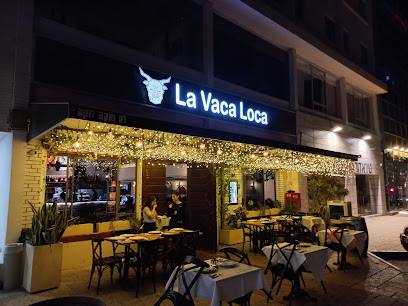
Nafis herzalia
Experience authentic Middle Eastern flavors at Nafis Herzliya – a culinary gem offering delicious dishes in a vibrant atmosphere.
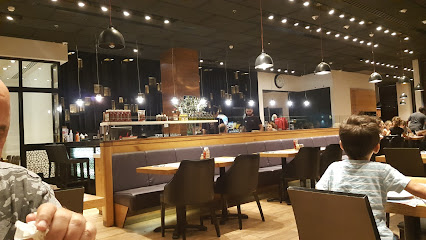
Zozobra
Discover the rich flavors of Asia at Zozobra in Herzliya – where every dish tells a story.
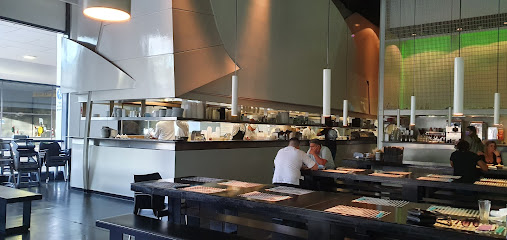
Giraffe
Discover Giraffe in Herzliya: A vibrant restaurant blending diverse flavors with an inviting atmosphere perfect for all occasions.
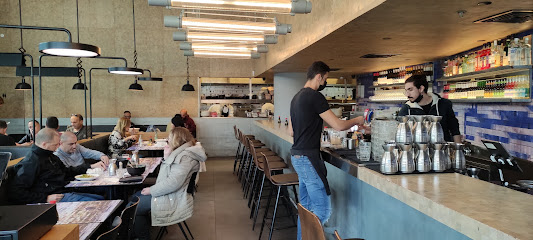
Tandoori Herzilya
Experience authentic Indian cuisine at Tandoori Herzilya - where every meal is a flavorful journey through India's rich culinary heritage.
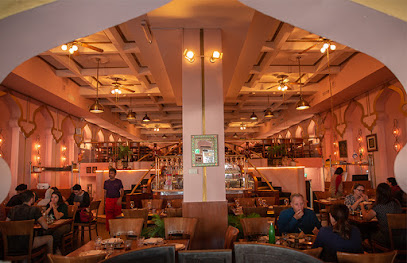
Joya
Experience authentic Italian cuisine at Joya in Herzliya - where traditional flavors meet contemporary dining.
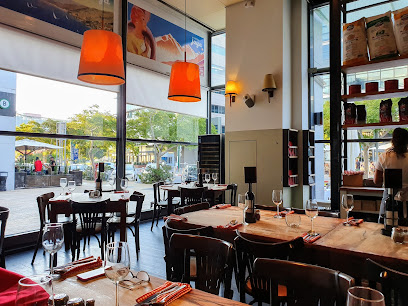
Derby Bar
Discover Derby Bar in Herzliya: A Seafood Paradise Offering Fresh Fish Dishes and Vibrant Dining Experiences.
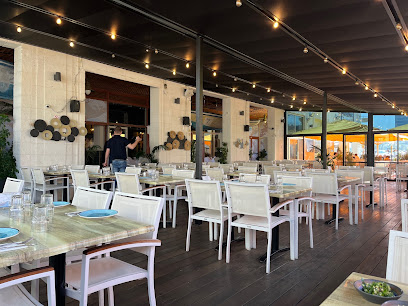
Sushi Room | סושי רום
Experience exceptional sushi and Asian cuisine at Sushi Room in Herzliya – where freshness meets creativity.
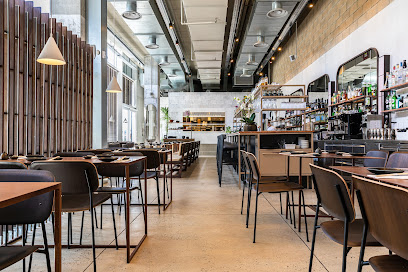
לחם בשר הרצליה
Discover the exquisite flavors of high-quality meats at Lechem Basar in Herzliya – a culinary gem blending tradition and modernity.
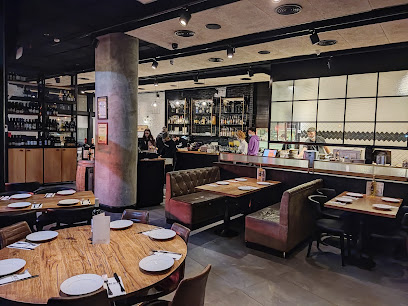
Yam 7
Experience the best of Mediterranean seafood at Yam 7 in Herzliya – where fresh flavors meet stunning ocean views.
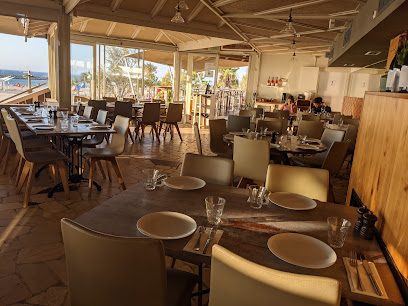
Bistro 56
Discover Bistro 56 in Herzliya: An upscale kosher restaurant offering exquisite cuisine and a vibrant atmosphere within Arena Mall.
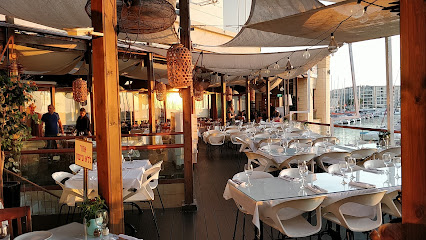
Markets, malls and hidden boutiques
Seven Stars Mall
Experience the best of shopping and dining at Seven Stars Mall in Herzliya, a vibrant destination for tourists and locals alike.
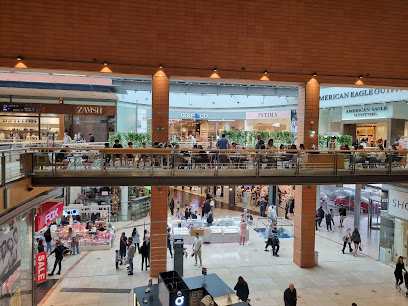
Arena
Discover the ultimate shopping experience at Arena in Herzliya, where fashion meets flavor and entertainment awaits every visitor.
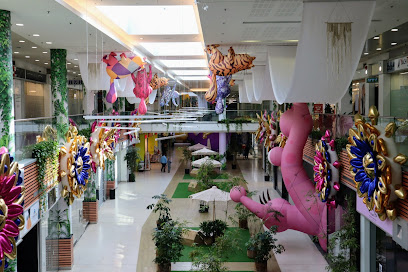
Azrieli Mall Herzelia
Explore Azrieli Mall Herzliya, the ultimate shopping destination offering a variety of brands, delightful dining options, and year-round entertainment.
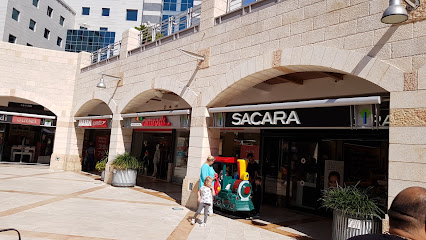
Azrieli outlet mall Herzelia
Explore the Azrieli Outlet Mall in Herzliya for unbeatable shopping deals, diverse dining options, and a fun-filled family atmosphere.
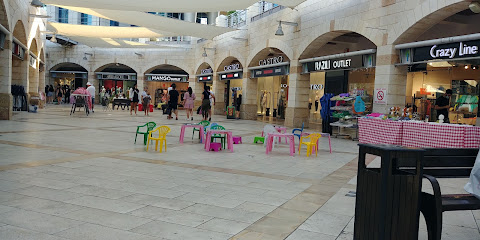
Stop Market
Discover Stop Market in Herzliya – a vibrant supermarket offering local and international products for an authentic shopping experience.
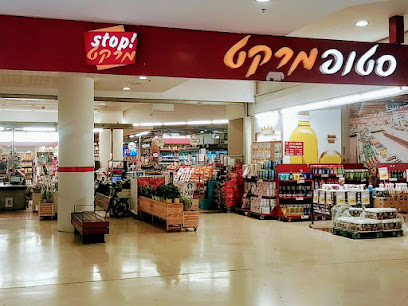
AM:PM
Explore the convenience of AM:PM, a 24/7 supermarket in Herzliya offering a variety of groceries and local snacks for every traveler.
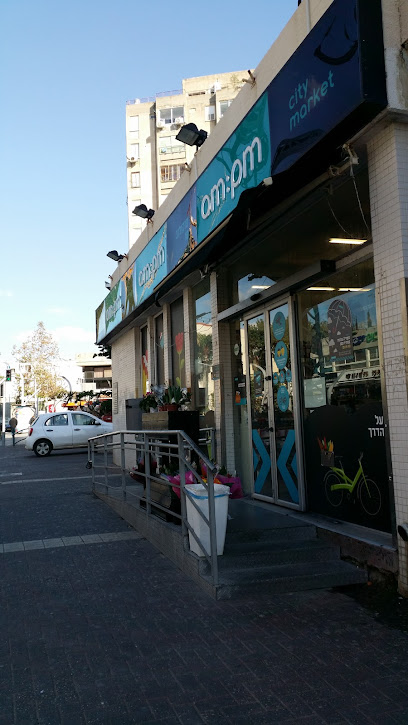
Emanuel Shalem
Discover Emanuel Shalem in Herzliya, the ultimate hardware store for DIY enthusiasts and home improvement lovers, offering a wide range of tools and supplies.
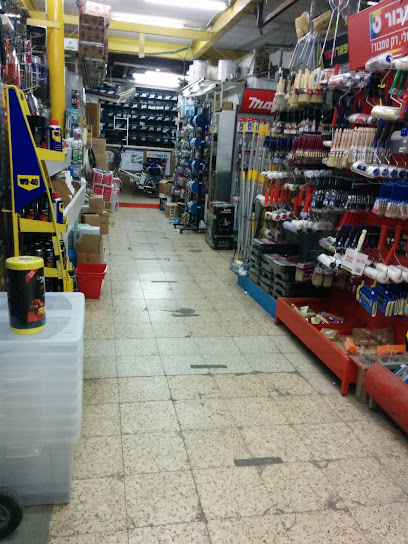
Max 20
Explore Max 20 in Herzliya for affordable home goods and unique souvenirs, a perfect stop for every traveler seeking to enhance their stay.
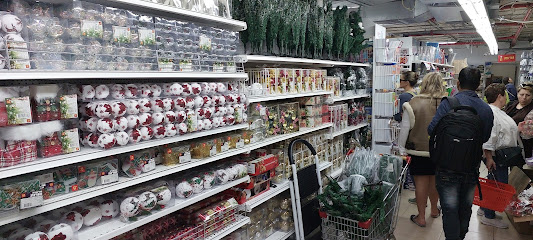
Carrefour Herzliya Pituach
Explore the vibrant Carrefour Herzliya Pituach for fresh produce and local delicacies in the heart of Herzliya, Israel.
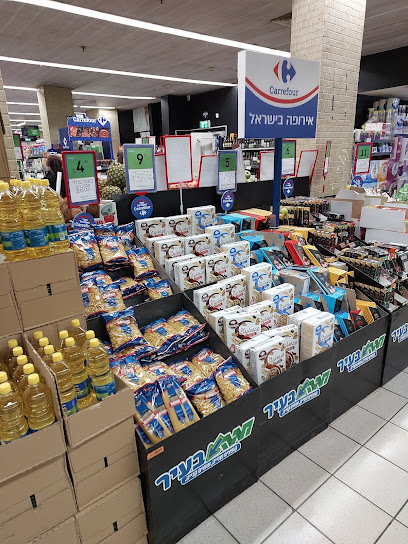
Bitan Market
Discover Bitan Market in Herzliya: Your gateway to local flavors, fresh produce, and budget-friendly shopping in the heart of Israel.
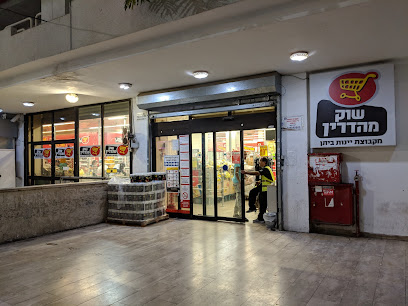
Bonjour Bakery
Discover the irresistible charm of Bonjour Bakery in Herzliya, where freshly baked goods and delightful pastries await every visitor.
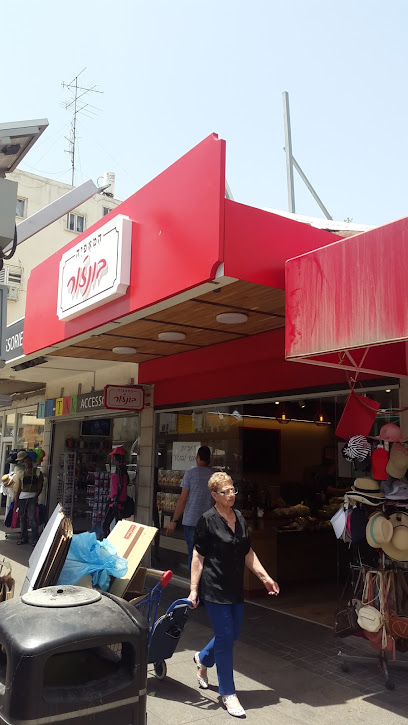
Top Art
Explore Top Art in Herzliya for a wide selection of quality art supplies and a vibrant community of creativity and inspiration.
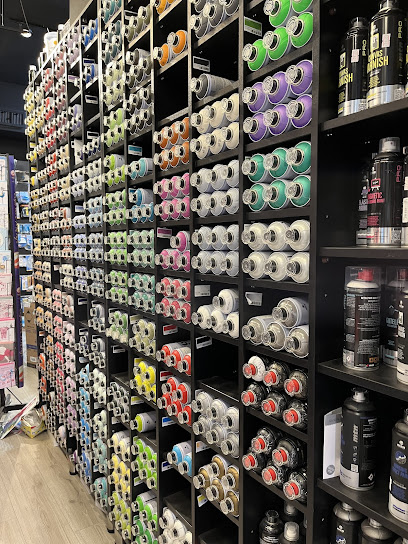
Good Pharm
Discover a wide range of health and beauty products at Good Pharm in Herzliya, your trusted drug store for all your wellness needs.
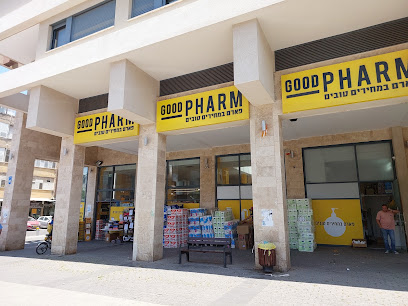
Cook-Shop
Discover unique home goods and charming decor at Cook-Shop in Herzliya, a must-visit for tourists looking to enhance their living spaces.
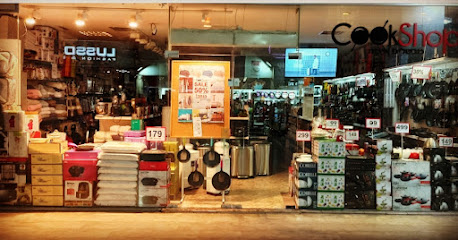
Columbia Sportswear
Explore Columbia Sportswear in Herzliya for high-quality outdoor gear and stylish sportswear that enhances your adventurous spirit.
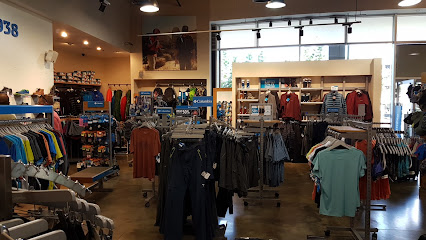
Essential bars & hidden hideouts
Inga Bar
Experience the vibrant nightlife at Inga Bar in Herzliya, offering exquisite cocktails, live music, and a lively atmosphere for an unforgettable evening.
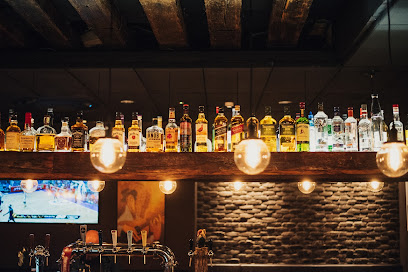
Parker
Experience the vibrant flavors of Herzliya at Parker, a gastropub offering an eclectic menu and lively atmosphere for food enthusiasts.
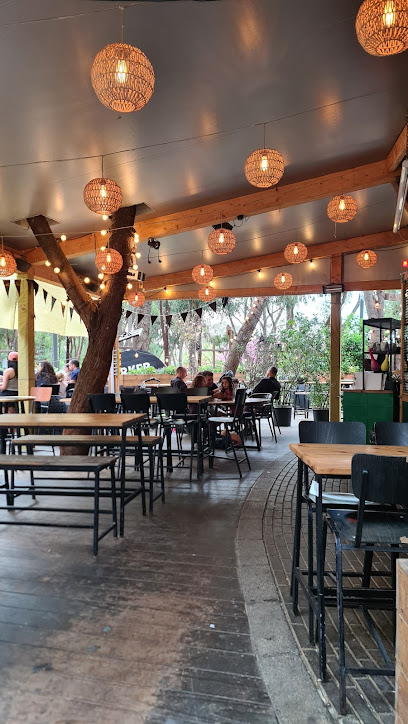
Jem's
Discover Jem's in Herzliya for a unique blend of craft beers and delicious cuisine, perfect for an unforgettable dining experience.
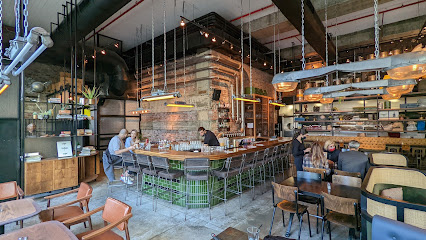
Lager & Ale
Experience the vibrant atmosphere of Lager & Ale, where beer lovers unite over a diverse selection of brews and mouthwatering fast food in Herzliya.
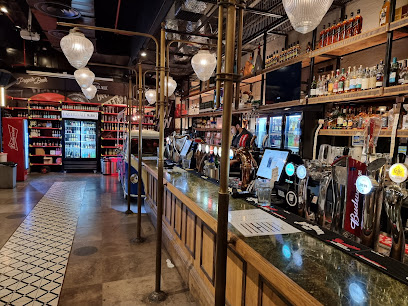
ים בר הרצליה
Experience the vibrant atmosphere of Yam Bar in Herzliya, where stunning beach views and delightful drinks create unforgettable moments.
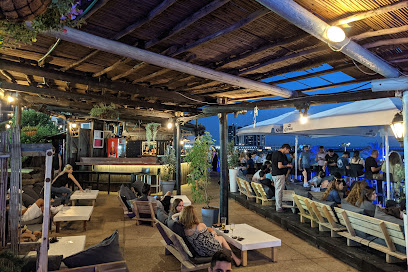
Rumor 22
Discover the lively ambiance and delectable cuisine of Rumor 22, Herzliya's premier gastropub offering an unforgettable dining experience.
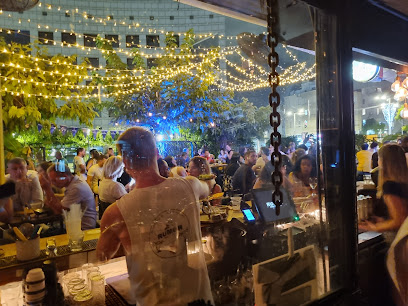
Dublin Herzliya
Discover the vibrant nightlife of Herzliya at Dublin Herzliya, where great drinks and a lively atmosphere await.
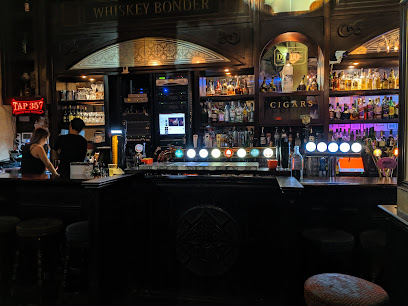
Grga Pitic’ Bar
Experience the vibrant nightlife at Grga Pitic’ Bar in Herzliya, where great drinks and a lively atmosphere await you.

ימה אירועים מול הים
Experience the perfect blend of vibrant nightlife and stunning ocean views at Yama Events by the Sea in Herzliya, Israel.
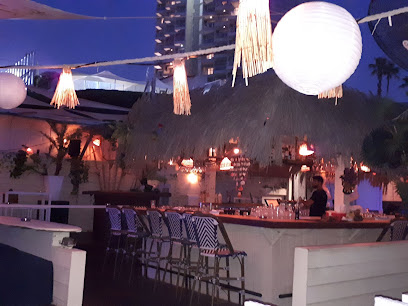
D Bar
Experience the vibrant nightlife at D Bar in Herzliya, a hotspot for cocktails, music, and unforgettable moments.
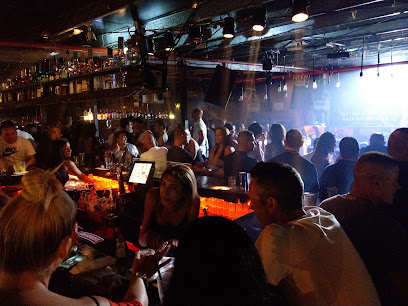
Jony Wine Bar
Experience the perfect blend of relaxation and sophistication at Jony Wine Bar, Herzliya's premier destination for wine lovers.
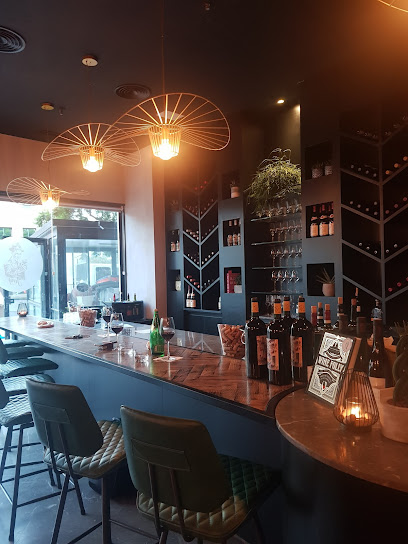
Vandel Bar
Experience the vibrant nightlife at Vandel Bar in Herzliya, where the drinks flow and the music keeps you dancing all night long.

Capri Pool&Bar
Experience the ultimate relaxation at Capri Pool & Bar in Herzliya, where luxury meets leisure in a stunning poolside setting.
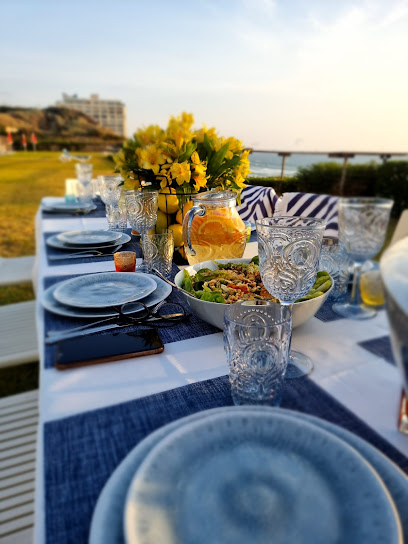
פאבים וברים בהרצליה
Experience the vibrant nightlife of Herzliya with its unique bars and pubs, offering a blend of local culture and exquisite cocktails.
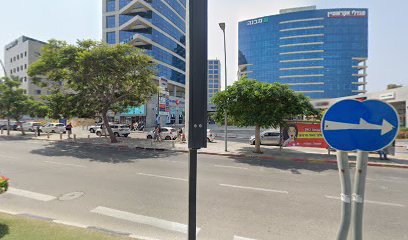
Local Phrases
-
- Helloשָׁלוֹם
[shalom] - Goodbyeלהתראות
[lehitraot] - Yesכֵּן
[ken] - Noלֹא
[lo] - Please/You're welcomeבבקשה
[bevakasha] - Thank youתודה
[toda] - Excuse me/Sorryסליחה
[slicha] - How are you?איך אתה?
[ech ata] - Fine. And you?טוב. ואיתך?
[tov. veitcha] - Do you speak English?אתה מדבר אנגלית?
[ata medaber anglit] - I don't understandאני לא מבין
[ani lo mevin]
- Helloשָׁלוֹם
-
- I'd like to see the menu, pleaseאני רוצה לראות את התפריט, בבקשה
[ani rotze lir'ot et hata'arich, bevakasha] - I don't eat meatאני לא אוכל בשר
[ani lo ochel basar] - Cheers!לחיים!
[lechayim] - I would like to pay, pleaseאני רוצה לשלם, בבקשה
[ani rotze lishlem, bevakasha]
- I'd like to see the menu, pleaseאני רוצה לראות את התפריט, בבקשה
-
- Help!עזרה!
[ezra!] - Go away!לך לעבור!
[lech leavor!] - Call the Police!קרא למשטרה!
[kra limishtara!] - Call a doctor!קרא לרופא!
[kra larofe!] - I'm lostאני אבוד
[ani avud] - I'm illאני חולה
[ani holeh]
- Help!עזרה!
-
- I'd like to buy...אני רוצה לקנות...
[ani rotze liknot...] - I'm just lookingאני רק רואה
[ani rak roeh] - How much is it?כמה זה עולה?
[kama ze ole?] - That's too expensiveזה יקר מדי
[ze yakar madi] - Can you lower the price?אתה יכול להוריד את המחיר?
[ata yachol lehorid et hamechir?]
- I'd like to buy...אני רוצה לקנות...
-
- What time is it?מה השעה?
[ma hasha'a?] - It's one o'clockהשעה אחת
[hasha'a achat] - Half past (10)חצי (עשר)
[chatzi (eser)] - Morningבוקר
[boker] - Afternoonצהריים
[tzohorayim] - Eveningערב
[erev] - Yesterdayאתמול
[etmol] - Todayהיום
[hayom] - Tomorrowמחר
[machar] - 1אחד
[echad] - 2שניים
[shnayim] - 3שלשה
[shalosh] - 4ארבעה
[arba'a] - 5חמישה
[chamisha] - 6שישה
[shisha] - 7שבעה
[shiva] - 8שמונה
[shmoneh] - 9תשעה
[tisha] - 10עשרה
[eser]
- What time is it?מה השעה?
-
- Where's a/the...?איפה נמצא/ת ה...
[eifo nimtza/nimtza'a ha...] - What's the address?מה הכתובת?
[ma hakatovet?] - Can you show me (on the map)?אתה יכול להראות לי (על המפה)?
[ata yachol leha'arot li (al hamapa)?] - When's the next (bus)?מתי האוטובוס הבא?
[matay ha'otobus haba?] - A ticket (to ....)כרטיס (ל...)
[kartis (le...)]
- Where's a/the...?איפה נמצא/ת ה...
History of Herzliya
-
Herzliya was founded in 1924 by seven pioneering families. Named after Theodor Herzl, the founder of modern political Zionism, the city was initially established as a moshava, an agricultural settlement. Its early years focused on farming, particularly citrus orchards.
-
In the 1960s, Herzliya Pituach, an affluent neighborhood along the Mediterranean coast, began to take shape. The area rapidly developed into a luxurious residential and commercial district, housing embassies, high-tech companies, and upscale restaurants and hotels. It has since become a major hub for Israel’s booming tech industry.
-
The ancient city of Apollonia, located within Herzliya's jurisdiction, dates back to the Persian period in the 5th century BCE. Excavations have uncovered remnants from the Hellenistic, Roman, and Crusader periods, including a fortress, residential quarters, and a harbor. Apollonia National Park is a testament to the area’s rich historical tapestry.
-
During the British Mandate period (1920-1948), Herzliya expanded significantly. The establishment of the Herzliya Hebrew Gymnasium in 1924 attracted families seeking quality education. Infrastructure improvements such as roads and public buildings facilitated further growth.
-
Following Israel’s declaration of independence in 1948, Herzliya experienced rapid urbanization. The city attracted a diverse population, including immigrants from Europe and the Middle East. New neighborhoods were built, transitioning Herzliya from an agricultural settlement to a modern urban center.
-
Since 2000, Herzliya has hosted the annual Herzliya Conference, organized by the Interdisciplinary Center (IDC) Herzliya. The conference is a significant event in Israeli public policy, where leaders from various sectors discuss national and global issues. This has further positioned Herzliya as a key player in Israel’s intellectual and political landscape.
-
In recent years, Herzliya has invested in cultural and recreational facilities. The Herzliya Marina, established in the 1990s, is one of the largest in Israel, attracting tourists and boating enthusiasts. Additionally, the city offers numerous parks, museums, and cultural centers that highlight its vibrant community life.
Herzliya Essentials
-
Herzliya is located on the central coast of Israel, just north of Tel Aviv. The nearest international airport is Ben Gurion International Airport, approximately 30 kilometers away. From the airport, you can take a taxi, shuttle service, or rent a car to reach Herzliya. Alternatively, there are regular train services from the airport to Herzliya, with the journey taking around 30 minutes.
-
Herzliya offers a variety of transportation options. The city is well-connected by public buses, which are operated by Egged and Dan companies. Taxis are easily available and can be hailed on the street or booked via apps like Gett. For those who prefer to drive, car rentals are available, and the city has good road connectivity including proximity to the Ayalon Highway (Highway 20). Herzliya also has numerous bike rental stations for an eco-friendly way to explore the city.
-
The official currency in Israel is the Israeli Shekel (ILS). Credit and debit cards are widely accepted in most establishments, including hotels, restaurants, and shops. ATMs are plentiful throughout Herzliya, and many of them offer services in multiple languages. It's advisable to carry some cash for small purchases, especially in local markets or smaller shops.
-
Herzliya is generally a safe city for tourists. However, it's always wise to take standard precautions. Avoid isolated areas at night and keep an eye on your personal belongings in crowded places, such as markets and beaches. While Herzliya does not have specific high-crime areas targeting tourists, staying vigilant is always recommended.
-
In case of an emergency, dial 100 for police assistance, 101 for medical emergencies, and 102 for fire services. Herzliya has several medical facilities, including the Herzliya Medical Center, which offers comprehensive health services. Pharmacies are widespread, and many offer 24-hour services. It's advisable to have travel insurance that covers medical emergencies.
-
Fashion: Do dress modestly, especially when visiting religious sites. Avoid wearing overly revealing clothing. Religion: Do respect local customs and traditions, and dress conservatively when visiting synagogues and other religious sites. Public Transport: Do offer your seat to elderly passengers and avoid eating and drinking on public transport. Greetings: Do greet people with a handshake or a small nod. It’s polite to use “Shalom” (peace) as a greeting. Eating & Drinking: Do try local delicacies and accept food offerings graciously. Don’t refuse hospitality, as it's considered impolite. Kosher dietary laws are observed in many places, so be respectful of these practices.
-
To experience Herzliya like a local, spend time at the Herzliya Marina, where you can enjoy cafes, restaurants, and shops with a beautiful view of the sea. Visit Herzliya Park for a leisurely stroll or a picnic. Join locals in the evening at the beach, which is popular for swimming, sunbathing, and beach sports. For a cultural experience, check out the Herzliya Museum of Contemporary Art. Don't miss the local markets for fresh produce and unique Israeli goods. Engaging with locals can enrich your visit, as they are often friendly and eager to share insights about their city.
Nearby Cities to Herzliya
-
Things To Do in Ra'anana
-
Things To Do in Raanana
-
Things To Do in Hod Hasharon
-
Things To Do in Kfar Saba
-
Things To Do in Tel Aviv
-
Things To Do in Ramat Gan
-
Things To Do in Jaffa
-
Things To Do in Holon
-
Things To Do in Netanya
-
Things To Do in Hadera
-
Things To Do in Modi'in
-
Things To Do in Caesarea
-
Things To Do in Ashdod
-
Things To Do in Zikhron Ya'akov
-
Things To Do in Jerusalem













